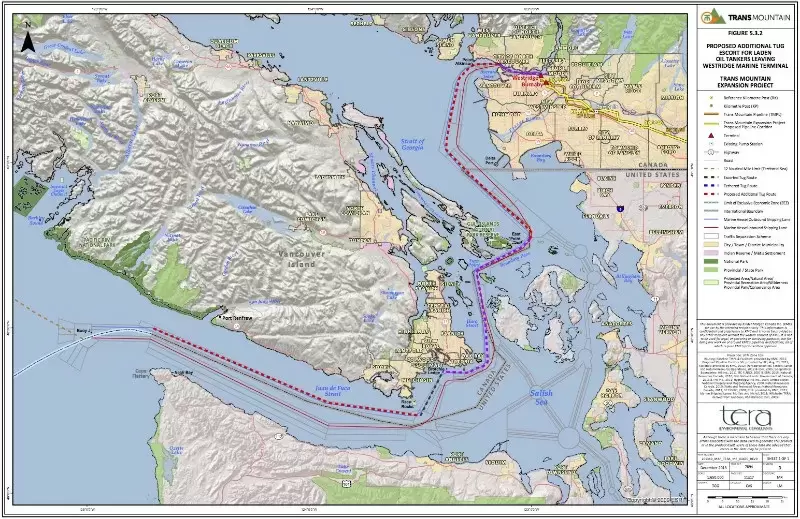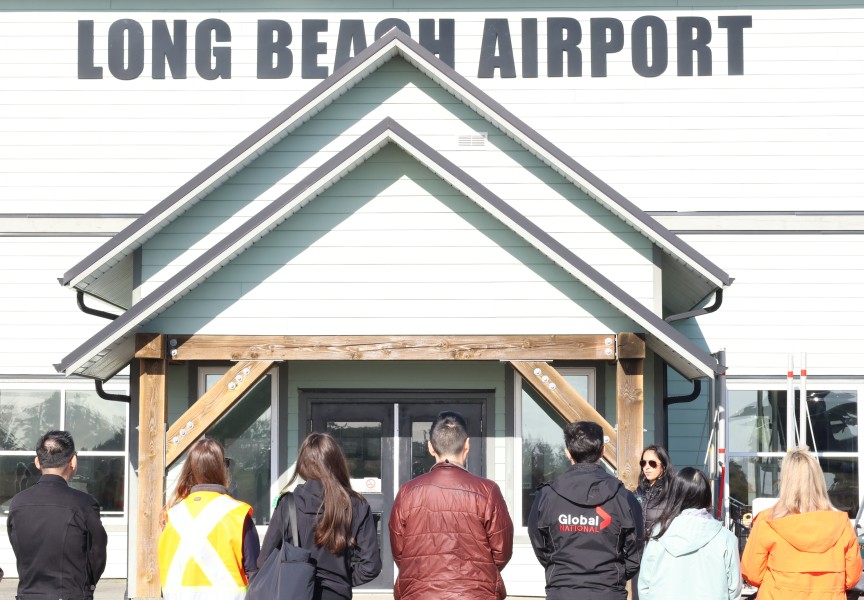With a shift in the balance of B.C.’s political power this month, the future of a pipeline project that would significantly increase oil tankers along Vancouver Island’s coast faces a growing degree of opposition.
John Horgan is scheduled to be sworn in as British Columbia’s next premier on July 18, after a partnership between the NDP and Green Party defeated the Liberals short-lived minority government in a confidence vote. Both the NDP and Greens campaigned against a proposed expansion to the Trans Mountain pipeline in the spring election, bringing opposition that will likely be supported by numerous coastal First Nations who fear how Trans Mountain will affect their territory.
Kinder Morgan plans to twin the existing Trans Mountain pipeline that runs from central Alberta to the Lower Mainland, increasing its capacity from 300,000 barrels a day to 890,000. The expansion has been heralded as a critical boost to Canada’s ability to export petroleum overseas. Tanker traffic is also destined to increase from Trans Mountain’s shipping terminal in Burnaby, growing from the current five oil tankers that traverse the route each month to an expected 34 vessels, according to Kinder Morgan. Measuring 235 metres in length, these tankers would follow the existing route from the Vancouver area to along the south portion of Vancouver Island.
More tankers will translate into a better deal for Canada’s oil, said the energy company.
“Currently, nearly all the oil produced in Western Canada goes to one market: the United States Midwest,” stated Kinder Morgan on its website. “There’s a limit to how much oil this market needs. For much of the last decade, Canada has been selling into the United States at a discount to the world price for similar oil products.”
With the prospect of 15,000 jobs during the project’s construction and another 440 permanent positions to operate the pipeline, Canada’s National Energy Board has approved the application to twin Trans Mountain. With this ruling the NEB cited efforts made by Kinder Morgan to engage with First Nations as the project has developed, as well as an employment policy favouring aboriginal peoples and training opportunities.
The energy board stated that this approach led to 27 aboriginal groups endorsing the project, but the Union of BC Indian Chiefs does not appear to be among the pipeline’s cheerleaders. In an open letter distributed in June, the union warned 28 major banks to not finance the pipeline expansion.
“Mark my words, Kinder Morgan’s Trans Mountain pipeline expansion project will never see the light of day,” said Grand Chief Stewart Phillip, President of the Union of the BC Indian Chiefs, in a statement from the organization. “We do not accept the unscrupulous liability of dirty oil coming through any pipeline system to benefit some Texans or multinational interests at the expense of our inherent responsibilities to our grandchildren’s grandchildren.”
Meanwhile, the federal government has argued that Trans Mountain is in the best interest of all Canadians, and has backed its support for the pipeline expansion with a formal plan that includes an enhanced spill response.
“Canada’s economy, environment and history are inextricably linked to our coastal regions,” said Prime Minister Justin Trudeau in November 2016. “The $1.5 billion Oceans Protection Plan unveiled today will make Canada a world-leader in marine safety and takes a powerful step toward co-management of our coasts with Indigenous and coastal communities, together making sure they remain healthy, clean, and safe for generations to come.”
With a potential increase in tanker traffic on the horizon, concerns were voiced during the Nuu-chah-nulth Council of Ha’wiih Forum on Fisheries in Tsaxana in June.
“Not one drop of oil on the coast of British Columbia,” declared Ahousaht Councillor Cliff Atleo. “I really dislike this idea of us being prepared for disaster.”







